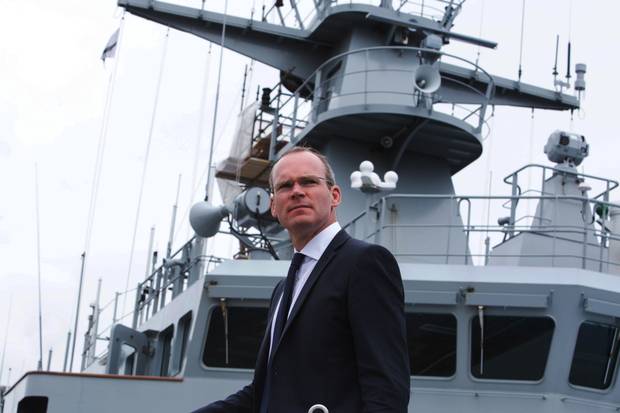After a strong result for the left in Portugal’s elections, the Portuguese Communist Party looks set for a decisive role in the future of its country. Áine Mannion spoke with Laura Almodôvar of the Portuguese Young Communists about the party’s work.
Portugal, like Ireland, has endured years of austerity after the financial collapse of 2008. Similarly, it exited a bailout programme enforced by the IMF, European Union and European Central Bank in 2014. The results of this programme, which cut public spending by €47 billion, are clear. In a country of 10.5 million, one in five live in poverty, one in eight is unemployed, while youth unemployment stands at 31%. Last year 110,000 people emigrated.
Much like Greece and Spain, Portugal has seen the rise of left movements opposing austerity, with the emergence of Bloco de Esquerda, a coalition of left parties, and the continued importance of the Portuguese Communist Party (PCP).
The PCP has deep roots in Portugal’s modern history, and was particularly prominent during the struggle against the Salazar dictatorship which ruled the country from the 1930s until the 1970s. Banned and with many of its leaders imprisoned, the PCP continued to exist as a mass underground organisation.
Since the Carnation Revolution in 1974 and the fall of the dictatorship, the party has played a significant part in Portuguese politics and established the CDU (Coligação Democrática Unitária – United Democratic Coalition) electoral alliance with the country’s considerably smaller Green Party in 1987. The party continues to fight elections under the CDU banner.
While the right-wing conservative party Forward Portugal Alliance (PAF) may have emerged from the 4th October elections as the largest parliamentary grouping (with 38% of the vote), it lost its parliamentary majority. Both Bloco and the CDU, at 10% and 8% respectively, not only retained, but increased their support.
It’s important to prove ourselves in all of the struggles
Laura Almodôvar, a member of the Portuguese Communist Youth (JCP), who visited Ireland during July, said: “Since our revolution, we have had two parties (the Socialist and Social Democrats) in government. They say that they are different from each other but the feeling you get in Portugal is that it’s the same right-wing policies. The thinking in Portugal is that you have to choose between one and the other but we are changing that.
“It’s important to prove ourselves in all of the struggles. We are in student unions, trade unions, regional and city councils.”
Almodôvar said the PCP is particularly pleased with its successes at local government level. “With communist mayors it’s easier to show how we would rule our country.”
She explains that although they do not form coalitions, the PCP works closely with others on the left in parliament. This includes the Greens and the Bloco.
“We do not want to make coalitions but we want a left majority so, of course, we know that Bloco is a strong and important piece of that majority. We vote on a lot of things in parliament with them. I don’t know what’s going to happen in the future but I hope they keep strongly to the left like ourselves.”
The PCP is well organised within the Portuguese trade union movement and is capable of mounting demonstrations in Lisbon which garner attendances of over 100,000 people. Every year, on the first weekend of September, more than 200,000 people arrive in Seixal, in the suburbs of Lisbon, for Festa do Avante!, the annual festival of the PCP named after its daily newspaper. The event features many of Portugal’s most popular pop and rock bands playing on the festival’s main music stage.
As well as a strong policy focus on economic development the PCP has also been a leading force for progressive social legislation.
“The PCP was the first political party to say that we should not criminalise drug addicts. We have to treat them, not put them in a cage and say they are criminals,” said Almodôvar.
At the turn of the century, Portugal was facing a public health crisis. There was a growing HIV epidemic among the country’s intravenous drug users, a group which had the highest incidence of the disease in Europe. Large amounts of money were being spent on a criminal justice system increasingly focused on drug-related crime.
The Socialist Party, Communist Party, the Greens, and the Left Bloc supported a law in October 2000 that removed all criminal penalties for drug use, proposing instead a Commission for the Dissuasion of Drug Addiction, consisting of a psychologist, social workers and legal advisor, and reporting only to the Department of Health.
By 2012, while the number of people taking drugs had only reduced slightly, the level of ‘problem drug use’ had fallen much more dramatically, especially among young people, and the rate of new presentations of HIV had dropped by almost 95% in a little over a decade.
With the success of decriminalisation, some organisations now call for drug legalisation. Almodôvar however, explains why the PCP does not make this call.
“If you legalise drugs in a society where you have everything you could possibly need – with real access to education, a good job, culture, sports – that’s one thing. But to do it in an ill society, that’s not going to work.”
The youth wing of the PCP organises students and young workers in a number of varied campaigns. This includes one calling for adequate guidelines for sex education from the Ministry of Education.
On the current sex education situation in Portugal, Almodôvar, said: “It really depends on the teacher’s goodwill and in some places it doesn’t happen. We think that it’s really important for the youth to have sexual education and not just about contraceptives but things like the history of gay rights. How you see sex and your sex life should be discussed in school.”
Drug law reform is not the only issue where Portugal’s radical left has seen their ideas take centre stage.
“For Portugal, we want to see negotiation on the [national] debt, the interest paid on it, and the date of its repayment. We want to invest in our country. When we started saying that we had to renegotiate the debt it was like we were crazy and talking about something that was impossible to do. But now nearly all parties say it’s not payable.”
The PCP historically opposed Portugal’s entry to the EU and Eurozone, calling instead for “a real European union, with real links of solidarity between countries and peoples”.
“This European Union is not made for that,” Almodôvar said.
“It is not possible to change in the European Union because fairness, equality and solidarity were not there in the core of its creation. The only way we can escape is to cut all the links to this mechanism of exploitation.”
However, the PCP believes that significant preparation will be necessary before any Portuguese exit from the EU.
“We have to start thinking of a solution and start preparing ourselves for the exit from the euro. We may choose to leave or we may be forced to leave. We don’t know. We have to be prepared each way. And it’s not just a political, technical, economic issue. It’s the people’s choice. We know it’s not rainbows and castles over there so we need the people to be with us, to win the people to this difficult battle. It’s the people’s choice.”





